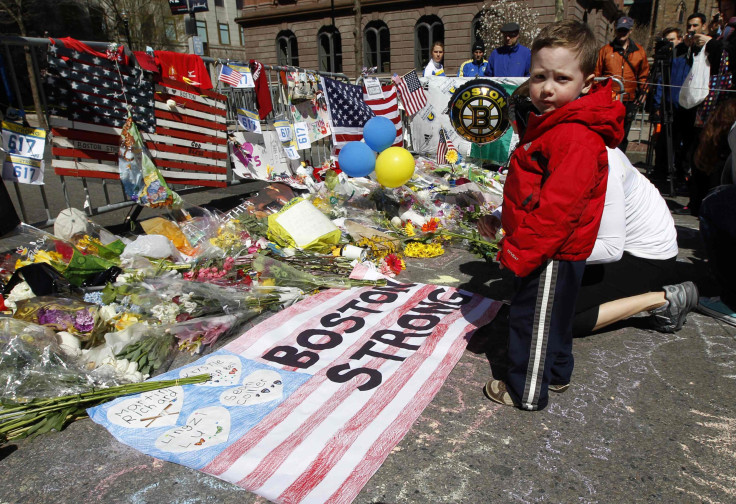Boston Mayor Menino Announces Plan To Re-Open Site Of Boston Bombing, Copley Square

One week after the tragic Boston Marathon bombings, Boston Mayor Thomas Menino announced a five-phase plan to reopen the bombing site, around Copley Square and Boylston Street, which remains closed off for investigation by federal authorities.
Noting he worked with members of his emergency management team and cabinet, Mayor Menino said in a press release: “Nearly a week ago our City took a deep breath and was forced to dive into a pool of uncertainty and fear.” Following a week of investigation, a daylong manhunt on Friday led to the death of one suspect in a police shootout and the arrest of the other, college student Dzhokhar Tsarnaev. Menino said, “Friday as our officers reported to the world, ‘We got him,’ a huge sigh of relief was felt across our great city and nation, so now it is time for us to start moving our city forward.”
Moving Boston forward means reopening the area where the two bombs exploded near the finish line of the Boston Marathon in a manner that’s respectful of the victims -- three dead and scores injured -- and others affected by the tragic events.
Though there's no set timetable yet, Menino said once the area is returned to the city of Boston from the federal investigators, the reopening will proceed in five phases: Decontamination and Testing, Structural Building Assessments and Utility Coordination, Debris Removal, Internal Building Assessments and Re-Entry, Communications and Counseling.
All personal items that have not been collected as evidence by the FBI will be returned and all memorials to the Boston victims will be handled with care. More specifically, Menino notes that the memorial previously located at Boylston and Berkeley Streets has been moved to Copley Square Park. The city of Boston will also post message boards throughout the area so individuals can write messages of support.
Prior to previewing the plan to reopen Copley Square, Menino wrote a letter to business owners and residents of the area surrounding the bombing site, in which he said, “I want to update you on the City’s plan for reopening Boylston Street and the impact area. One of my top priorities is ensuring the stability and health of the Back Bay neighborhood, and multiple city agencies have been coordinating to create a plan.”
Menino said the city of Boston will make sure the area is safe for the public and that all equipment and debris will be removed. Inspectors and business owners will then be able to assess any damages and determine when a property will be allowed to reopen. There is no timetable established for the reopening of Copley Square, and some streets may be reopened earlier than other locations, but Menino said he hopes to ease the process by minimizing bureaucracy.
© Copyright IBTimes 2024. All rights reserved.












